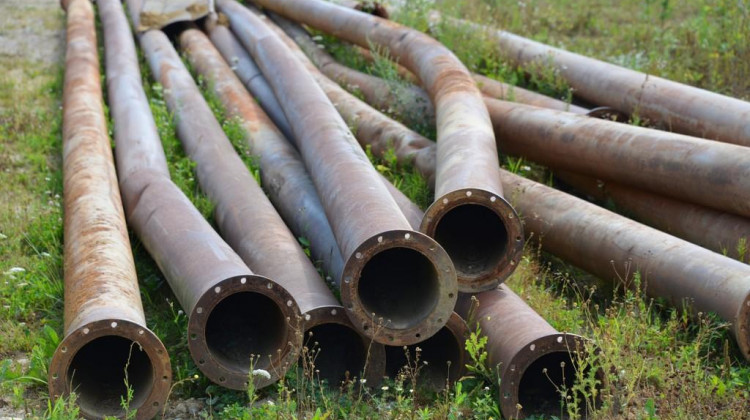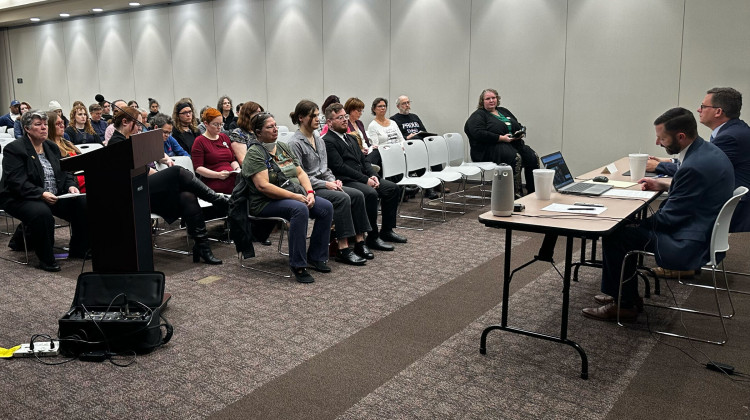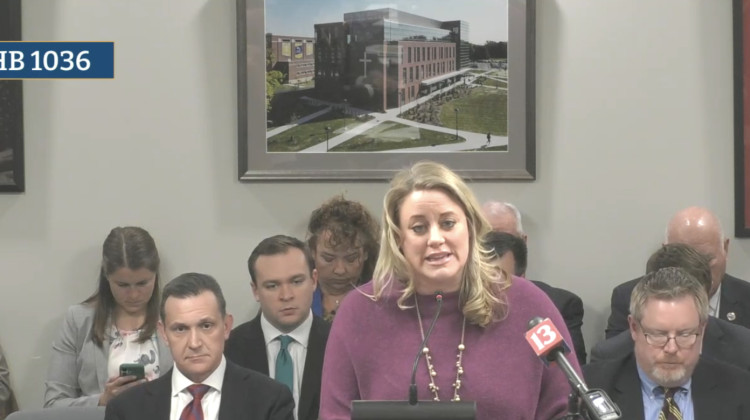A state agency has convinced the City of East Chicago to fully replace lead pipes in some homes near the USS Lead Superfund site. It had only been doing partial replacements — a practice the Environmental Protection Agency says doesn't reduce lead contamination and can sometimes make it worse.
“Thirty-five residents did receive partial lead service line replacements without really understanding the risks involved,” says attorney Debbie Chizewer, who represents residents through the East Chicago/Calumet Coalition Community Advisory Group.
Chizewer says she contacted the Indiana Finance Authority after she heard that some homes were only getting partial replacements.
In a letter, the Indiana Finance Authority said the state grant used to swap out lead pipes in East Chicago is partly funded through EPA dollars — and the EPA doesn’t recommend partial lead line replacements.
Contractors doing the work say they were only replacing some of the pipes at select homes because they weren’t allowed to tear up walls in finished basements.
READ MORE: Some East Chicago Homes Not Getting All Lead Pipes Replaced
The IFA said the city could still do some partial lead pipe replacements, but only if homeowners acknowledged the risks in writing. But Chizewer says no home should be an exception to these safety standards.
“The access agreements that residents sign should not include any possibility that there may be a partial lead service line replacement,” she says.
The IFA says if a homeowner doesn't acknowledge the risks in writing, contractors should skip that house for now. Chizewer says she hopes the city will also remove the remaining pipes at homes that had partial replacements.
Indiana Public Broadcasting couldn't reach the City of East Chicago or the Indiana Finance Authority for comment.
Indiana Environmental reporting is supported by the Environmental Resilience Institute, an Indiana University Grand Challenge project developing Indiana-specific projections and informed responses to problems of environmental change.
 DONATE
DONATE









 Support WFYI. We can't do it without you.
Support WFYI. We can't do it without you.